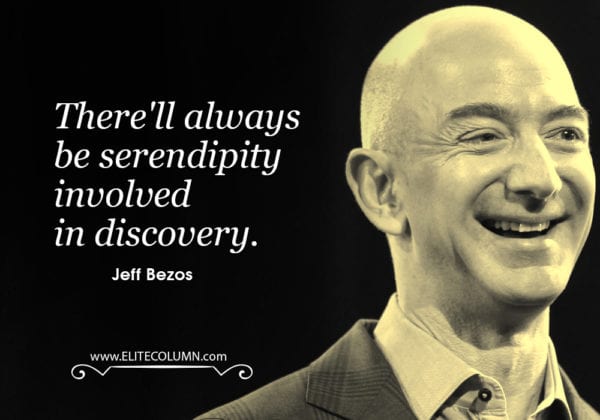

In the midst of a tumultuous presidential race, Jeff Bezos' recent decision to prevent the Washington Post from endorsing any candidates, specifically Kamala Harris, has been met with sharp criticism and accusations of cowardice and fear. This decision, coupled with similar actions from other media outlets, reflects the overwhelming control and influence that Bezos holds in the world of American media and raises concerns about the true state of free press in the country. All the while, the media continues to struggle in accurately understanding and representing the perspectives of Trump's supporters and the complexities of American society.
Jeff Bezos' Influence on the Washington Post and the State of Free Press in America
Background
In the midst of the contentious 2020 presidential race, Amazon founder and Washington Post owner Jeff Bezos made a controversial decision that drew significant attention: he prohibited the newspaper from endorsing any presidential candidates. This decision, along with similar actions from other media outlets, raised concerns about the independence of the press and the influence of wealthy individuals on American media.
Criticism and Accusations
Bezos' decision was met with sharp criticism. Critics argued that it was an act of cowardice and fear, as it prevented the Post from taking a stance on one of the most important political events in the country. Some also accused Bezos of seeking to protect his business interests, as Amazon has benefited from government contracts during the Trump administration.
Control and Influence
The decision to ban endorsements highlights the immense control and influence that Bezos holds over the Washington Post. As the sole owner of the newspaper, he has the authority to dictate its editorial policies and direction. This raises concerns about the diversity of viewpoints represented in the Post and its ability to provide a balanced and objective reporting of the news.
The State of Free Press
The Washington Post's decision reflects a broader trend in American media, where a select group of wealthy individuals and corporations have increasing control over the news and information that the public consumes. This trend has raised concerns about the state of free press in the country, as it can lead to a narrowing of perspectives and create an environment where alternative viewpoints are suppressed.
Understanding Trump Supporters and American Society
The media has also come under fire for its struggles in accurately understanding and representing the perspectives of Trump supporters and the complexities of American society. Critics argue that traditional media outlets often fail to connect with rural and working-class audiences, leading to a disconnect between the nation's political elite and its citizenry.
Top 5 FAQs and Answers
1. Why did Jeff Bezos ban endorsements at the Washington Post? A. It is unknown, but possible reasons include cowardice, fear, or protecting business interests.
2. Is the Washington Post's ban on endorsements a threat to free press? A. It raises concerns about the influence of wealthy individuals and corporations on the media and the diversity of viewpoints represented.
3. What is the state of free press in America? A. There are concerns that it is under threat due to increasing control by wealthy individuals and corporations.
4. Why does the media struggle to understand Trump supporters? A. Traditional media outlets often fail to connect with rural and working-class audiences, leading to a disconnect.
5. What can be done to improve the media's representation of American perspectives? A. Encourage diversity in newsrooms, foster connections with diverse communities, and invest in local journalism.

Activists and advocacy groups staged massive demonstrations across the country in response to what they see as President Trump's abuse of power. With signs protesting policies such as mass deportations and the federal government shutdown, protestors showed a fierce love for their country. Though there were no reports of violence or arrests, Republicans labeled the demonstrations as "hate America" rallies. Organizers estimate that nearly 7 million people participated in over 2,700 cities and towns throughout the U.S., making it one of the largest reported one-day protests in American history.

With the 2025 Assembly Elections in Bihar on the horizon, the state's Araria constituency is gearing up for an intense revision of its electoral roll. This decision by the Election Commission aims to ensure that all eligible citizens are registered to vote in the upcoming elections. In the last election, the Congress emerged victorious in the constituency, but with no candidates declared yet, all eyes are on the official schedule for the 2025 Bihar Assembly Elections.

The Bharatiya Janata Party (BJP) in Andhra Pradesh marked Dhanvantari Jayanti with a colorful rally and speeches highlighting social inclusion, cultural heritage, and development. Leading state and district leaders, including BJP State president PVN Madhav, addressed the gathering and emphasized the party's commitment to equal respect for all religions and welfare initiatives for marginalized groups. At another event, Telangana BJP president Ramachandra Rao endorsed a proposed reservation for backward classes in Telangana and criticized the Congress and other parties for corruption while touting BJP's claim of clean governance.

Defence Minister Rajnath Singh, while flagging off the first batch of BrahMos missiles in Lucknow, warned Pakistan that their entire territory is now within range of India's powerful missiles. Singh also highlighted the success of Operation Sindoor, stating that it was just a glimpse of India's growing capabilities. The minister emphasized that BrahMos serves as a symbol of India's strategic confidence and is a key pillar of the country's defence forces.

Crowds gathered in various cities across the US and overseas today for the No Kings rallies, organized to protest against President Trump's administration and to defend First Amendment rights. From Los Angeles and New York to Chicago, Washington D.C, and Austin, Texas, protesters marched and chanted, carrying homemade signs with messages such as "We want all of the government to work" and "Make America Good Again." Despite the festive atmosphere, the message was serious as speakers called for the protection of Constitutional rights, which they feel are being threatened by the current administration.

After issuing directions earlier this year to expedite the disposal of execution petitions, the Supreme Court has expressed disappointment over the fact that more than 8.8 lakh such petitions are still pending across the country. Despite disposing of 3.38 lakh petitions since March, the Court notes that the backlog is still concerning. It warns that delay in executing decrees could result in travesty of justice and directs the Karnataka High Court to provide an explanation for not submitting data on pending cases.

With election results just around the corner, the Union Home Minister has reiterated the BJP's respect for its alliance partners. The decision on forming a government in light of the election outcome will be based on the results and mutually agreed upon by all parties involved. Stay updated with News24 for the latest developments in the political sphere.

In a surprise move, President Donald Trump has commuted the sentence of former U.S. Representative George Santos, who was serving a seven-year prison term for fraud and identity theft. Santos, a New York Republican, admitted to deceiving donors and stealing the identities of 11 people, including family members, to fund his campaign. The decision was announced by Trump on social media, spurring strong reactions from both supporters and critics.

In a significant development, Defence Minister Rajnath Singh inaugurated Hindustan Aeronautics Limited's third production line for the LCA Tejas Mk1A and also witnessed the aircraft's successful maiden flight in Nashik. The event also marked the inauguration of HAL's second production line for the Hindustan Turbo Trainer-40 (HTT-40). With the approval of the purchase of 97 LCA Mark 1A fighter jets, the need for new inductions has been underlined by IAF chief AP Singh, while HAL officials remain confident in meeting this requirement.

In a significant development, over 200 Maoist rebels, including top leaders Rupesh and Ranita, have surrendered to Indian security forces in the Bastar region of Chhattisgarh. This marks a critical moment in the long-standing fight against Naxalism in the country. The region of Abujhmarh and North Bastar, known for its dense forests and difficult terrain, has historically served as a safe haven for Maoist groups, making it challenging for authorities to root out their presence. The massive surrender of Maoists is not only a tactical win but also a symbolic victory in the government's efforts to rid the "Red Corridor" of Naxalite influence.